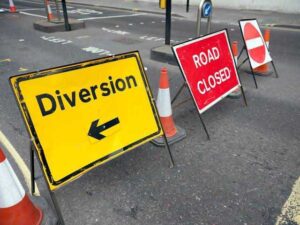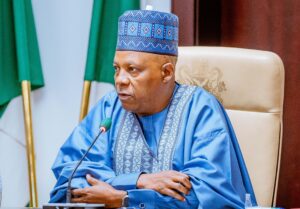Camp Merger is an internationally recognised practice —Zulum
……Says only 11 communities restricted on aide
Also in his address to humanitarian partners, Governor Zulum explained while humanitarian workers were encouraged to continue supporting IDPs in camps still in existence, the Government placed restrictions of food aide in 11 communities which were rebuilt with the involvement of some foreign humanitarian and development partners, including the UN, after the communities were identified as safe for civilian reoccupation.
“There are still thousands of people in many IDP camps across the State that need help, and we need you to continue to work in these camps where you have been working before. We do not wish to create new camps where they do not exist. What is needed is to support people, build resilience, and livelihood” Zulum said.
The Governor listed the 11 communities to include Ajiri, Kalari and Ngom in Mafa LGA, Kawuri in Bama, Baga town, and Cross Kyawa in Kukawa, Shuwari in Jere, Ngoshe in Gwoza, Marte town in Marte, Wulgo Town in Ngala, Gubio Town in Gubio, and Magumeri Town in Nganzai LGA.
He said: “These newly built houses, where people are resettled with food and non- food items, and capital to start their livelihoods are what we call resettlement communities. This is where people are being brought back to pick up the pieces of their lives and start economic activities and have a life of dignity where they have some sort of social amenities and give better upbringing to their children” Zulum said.
“These are the places we are saying you should leave people alone to settle down, reflect on what they have gone through in the last 10 years, plan their future and the future of their families and begin a process of rebuilding their lives in dignity. These are the places we asking you not to go and make people continue to queue up for food that they can acquire for themselves, and where there are difficulties, the Government itself will step in and provide” He added.
“What the Government is asking you to do is to let people live in dignity and allow adults to assume the responsibilities they all crave to have and bring up their children with dignity. What we are saying is you should not take people living in their houses with their children, out to queue up for rations of food – it erodes their dignity as human beings and takes away the opportunity to teach their children the value of hardwork which is a unique human attribute” the Governor maintained.
Says Govt monitors resettled communities
The Governor also explained that “the Borno State Government has set up a Monitoring Team under the Chairmanship of Engr Bukar Talba, the Commissioner of Agriculture.
This Team is constantly monitoring the activities and progress being made in the resettled Communities. The LGA Chairmen are constantly giving feedback, and where there are issues, the Government steps in to address these issues, including supply of food as our primary responsibility.
For example, since the resettlement started, Government has distributed food in all the locations, with the last being yesterday (Monday, December 21) at Ngoshe in Gwoza LGA” but noted that interventions are done in ways that won’t undermine resilience.
The meeting was attended by the Governor’s Special Adviser on Sustainable Development, Partnerships and Humanitarian Response, Dr. Mairo Mandara and the Adviser on Security, Brigadier General Abdullahi Sabi Ishaq (Rtd).




